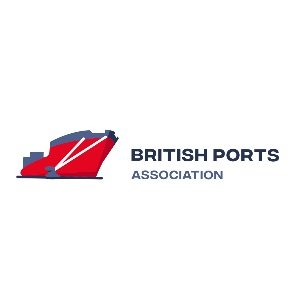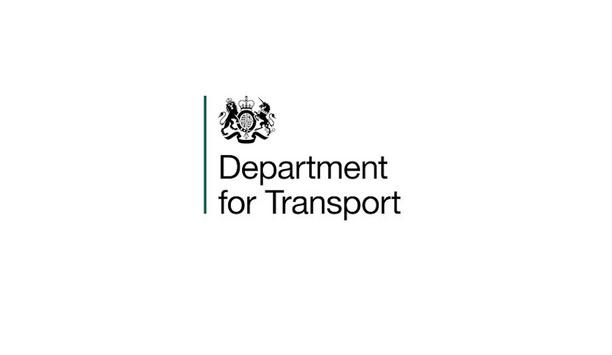British Ports Association - Experts & Thought Leaders
Latest British Ports Association news & announcements
Fuels of the future and shipping charge points in harbours are at the centre of a major new strategy to make Britain’s shipping fleet net zero by 2050 and drive growth in coastal communities. The Maritime Minister has revealed the Government’s new goals for all vessels that operate in UK waters and dock at UK ports to be carbon-free and help vessel owners, operators and scientists make emission-free voyages a reality. Maritime Decarbonisation Strategy Maritime Decarbonisation Strategy sets out goals to reduce greenhouse gas emissions by 30% by 2030 Part of the Government’s Plan for Change to propel the UK towards becoming a green energy superpower and drive growth, the new Maritime Decarbonisation Strategy sets out goals to reduce greenhouse gas emissions by 30% by 2030, 80% by 2040 and to zero by 2050. This will see the UK match the highest level of the ambitious goals agreed at the International Maritime Organization in their 2023 Strategy on Reduction of Greenhouse Gas Emission from Ships. Investment in green technologies Investment in green technologies and fuels will cement the UK as a clean energy superpower and encourage a green economic revival at the local level, helping to build high-skilled jobs in coastal communities, delivering a local boon to cities and towns. Under the new strategy, the shipping sector will be brought under the UK Emissions Trading Scheme (UK ETS). This will see operators of larger vessels such as tankers and cruises – which cause the most pollution - pay more for their greenhouse gas emissions. New green shipping technologies The strategy sets out plans to reduce emissions from shipping and raise the use of clean fuels Furthermore, the strategy sets out plans to reduce emissions from shipping and increase the use of clean fuels and technologies, such as hydrogen, electric or ammonia vessels. Later, the Minister will launch the new strategy in Portsmouth with vessel chargeport pioneer ABB and demonstrate how these new green shipping technologies will bring in private investment, create thousands more jobs, and revitalise coastal communities. Such investment has already seen growth in coastal regions, with the £206m of UK Shore funding having already supported over 300 organisations across every nation and region in the UK, and secured over £100 million of private investment, helping to kickstart economic growth. Climate change Maritime Minister Mike Kane said: “Climate change is one of the greatest challenges we face today. Working together with industry and international partners, we are driving down emissions in every corner of the economy." “As part of our Plan for Change, we’re committed to making the UK a green energy superpower, and our Maritime Decarbonisation Strategy will help us build a cleaner, more resilient maritime nation.” Net zero with ambitious targets The government has launched two calls for proof to help inform the growth of measures In addition, the Government is also launching two calls for evidence now to help inform the development of measures needed to reduce emissions at berth, understand the future energy demand at ports and decarbonise smaller vessels. Richard Ballantyne OBE, Chief Executive of the British Ports Association, said: “We welcome today's announcement. UK ports are already demonstrating their commitment to net zero with ambitious targets and investment in new technologies and fuels." Investment and decarbonisation for vessels Ballantyne added: "The UK SHORE programme shows what can be achieved when government and industry work together on shared goals." "We will continue to work closely with the Department for Transport on lowering barriers to investment and decarbonisation for both ports and vessels and this strategy will help set a clear direction and expectations well into the future. We look forward to a continued close partnership built on common aims.” Challenge and opportunity for the maritime sector Chris Shirling-Rooke, Chief Executive of Maritime UK, said: “Decarbonisation is both an enormous challenge and opportunity for the maritime sector, with huge potential for growth, jobs and innovation in our coastal communities, and across the whole of the United Kingdom." "It is vital that our country continues to drive change and chase growth by creating a cleaner and more sustainable future. We welcome the Government’s commitment today and look forward to continuing to work with them on the Maritime Decarbonisation Strategy.” Zero emissions vessels and infrastructure Mike Sellers, Director of Portsmouth International Port, said: “We welcome the announcement of the new Maritime Decarbonisation Strategy, which the port’s masterplan very much aligns with. To help achieve this ambition, we’re on track to become the UK’s first multi-berth, multi-ship ‘chargeport’ by providing renewable plug-in energy when ships are alongside from Spring 2025." "The Seachange shore power project, demonstrates the success of both public and private investment, supported by the government’s zero emissions vessels and infrastructure (ZEVI) fund, driving innovation towards net zero. We’re pleased to show the minister what’s happening in Portsmouth and how this could be a model for ports across the country.” Net zero emissions by 2050 Rhett Hatcher, CEO of the UK Chamber of Shipping, said: “The UK Chamber is proud to have led the way on decarbonisation, publicly calling for the global shipping industry to reach net zero emissions by 2050, prior to the UK Government and IMO Commitments." "Across our sector, we have already invested in new technologies and pioneering innovations to meet our commitments and are pioneering the drive towards net zero. We therefore welcome the Government’s publication of the Maritime Decarbonisation Strategy, as a much-needed successor to the 2019 Clean Maritime Plan." Green transition for UK maritime Hatcher added: “The Government’s strategy must now be matched by delivering the regulatory framework, technology and infrastructure, including a shore power revolution, required to support the green transition for UK maritime, bringing benefits to maritime communities and the UK economy." "We look forward to working collaboratively alongside the government to progress this important agenda and reach our shared goals of a cleaner, more resilient maritime sector in the UK.” Reduce emissions from global shipping Anna Krajinska, UK Director at Transport & Environment (T&E), said: "T&E welcomes the government's commitment to reduce shipping emissions by 30% by 2030, 80% by 2040 and net zero by 2050. It is crucial that ambitious targets are coupled with robust policy measures to slash the UK’s domestic and international shipping emissions without delay." With global shipping accounting for 2% of all emissions, the UK will push for high ambitions at the UN’s next meeting of the International Maritime Organization (IMO) in April, as it develops important measures to reduce emissions from global shipping.
The UK government announces a substantial commitment of £34 million in funding to support the maritime sector's development of innovative solutions and new technologies. The funding forms part of the Clean Maritime Demonstration Competition (CMDC), a vital initiative that aims to accelerate the transition to a sustainable and low-carbon maritime sector while promoting economic growth. With the launch of this fourth round of funding, the total investment through the CMDC programme has now reached £129 million, highlighting the government's strong commitment to achieving net zero goals. Promoting economic growth Funding will open for applications on 2 August until 27 September with Maritime UK, in collaboration with their network of regional cluster organisations, hosting a series of CMDC update and networking events to be held throughout the United Kingdom. Funding will open for applications on 2 August until 27 September with Maritime UK Chris Shirling-Rooke, CEO Maritime UK said: “This further investment through the Clean Maritime Demonstration Competition underscores the government's unwavering commitment to supporting the maritime sector in its transition to a sustainable and net zero future.” “By fostering innovation and embracing cutting-edge technologies we can ensure the UK maintains its position as one of the global centres for green maritime technology. Maritime UK is also delighted to support early engagement with CMDC4 through our update and networking events, held in collaboration with Department for Transport and regional cluster organisations.” Net zero ambitions Richard Ballantyne, CEO British Ports Association said: “We welcome this next round of funding from the Department for Transport. These kinds of interventions embody the sort of collaboration we all agree is necessary to achieve our joint net zero ambitions.” The Government has allocated £206m for a UK Shipping Office for Reducing Emissions (UK SHORE). This is a programme within the DfT focused on accelerating the technology necessary to decarbonise the domestic maritime sector. UK SHORE is delivering a suite of interventions aimed at addressing different barriers to maritime decarbonisation. This includes a flagship multi-year CMDC to help bring pre-commercial technologies to market level.
Both the UK military and the £116bn maritime industry face the same tough challenges when it comes to recruiting the right people with the right skills for the next few decades. That was the clear message that came from the afternoon session of the fifth Maritime Exchange conference held in Liverpool. Organised by Mersey Maritime, the event brought together UK maritime leaders at the Tung Auditorium at the University of Liverpool. Decarbonisation and digitisation Two-panel sessions in the morning focused on decarbonisation and digitisation of the industry. In the afternoon skills and careers were put in the spotlight in another two lively panel discussions. Opening the afternoon period was Commodore Phil Waterhouse of the Royal Navy who is also a Board Member of Mersey Maritime. Haythornthwaite report findings The 135-page report said the UK’s army, air force and navy were all struggling to recruit people with the right technological skills In a keynote address Commodore Waterhouse, Naval Regional Commander for Northern England and the Isle of Man revealed the findings of the Haythornthwaite report that was published by the British Government last week. Written by businessman Rick Haythornthwaite, the 135-page report said the UK’s army, air force and navy were all struggling to recruit people with the right technological skills. This, it outlined, represented a real threat to the UK’s military’s operational effectiveness and its capacity to cope in a modern conflict such as the current war in Ukraine. Addressing the traditional “take-it-or-leave-it” approach The report said: “Will the people system at the heart of (the UK’s) military capability work when tested? Will it still have the strength, agility, skill, adaptability, and resolve we have seen from the Ukrainian armed forces or will that core prove hollow?” It added that the UK’s military’s “take it or leave it” approach to recruitment needed to change as it was competing with the private sector for the same set of cyber-related and technological skills that would be critical in the next few years. Paradigm shift It referred to a paradigm shift where in a competitive workplace potential employers were having to tailor their offer to attract the right people. Careers seekers now looked for employers that were welcoming and were clear about career progression and a nurturing environment. In contrast, the British military’s “company approach” is like “one size fits no one”. First-panel session Discussion on future skills In the first panel session, Simon Eardley chaired the discussion on future skills In the first panel session of the afternoon Mersey Maritime’s Head of Policy and Partnerships, Simon Eardley chaired the discussion on future skills. On the panel was Brian Johnson, UK Business Development Director at defence giant BAE Systems, Ben Murray, Director of Government and Corporate Affairs at shipbuilder Harland and Wolff, Rachel Lynch, a Strategic Organiser at seafarers’ union Nautilus International and Liverpool John Moores University Senior Maritime Lecturer Dr. Dimitrios Paraskevadakis. AI-based advanced warships Brian Johnson kicked off the discussion by echoing the issues raised in the military recruitment report. Over the next couple of decades, BAE will be building the most advanced warships ever designed. They will be packed with AI and the latest technology. When recruiting they not only have to consider what skills they need right now, but the skills they will need in years to come. New skills and skilled technicians “I’m regularly in meetings where I am talking about things that are one or two decades ahead… we will have to employ people who understand that technology and how it will be deployed.” He went on, “The ships we are making are very complex. And the skills that we need for them are the same skills the software market is looking for… it is a constant challenge when you are competing with tech giants for systems engineers.” Maritime strategy and a shipbuilding strategy A few years ago when Harland & Wolff in Belfast advertised for apprentices, but they weren't getting enough applicants" Ben Murray said it was good the UK had both a maritime strategy and a shipbuilding strategy. He explained, “A few years ago when Harland & Wolff in Belfast advertised for apprentices, they weren’t getting enough applicants. But since they see ships in the yard it gives them more confidence and now we are over-subscribed.” Automation He added that rather than fearing the emergence of AI and new technology, the workforce at Harland and Wolff was broadly welcoming and didn’t see it as a threat to their jobs. He added, “When it comes to automation there is a real positive view from people. They see that if we are more efficient and more competitive then we will get more orders… it is all about how we redeploy people and bring them along with us.” Paying attention to seafarers There was a warning from Rachel Lynch that the Government had become too focused on technology in the maritime sector and was not paying enough attention to the welfare of its seafarers. “The Government must start investing in people,” she said. “There is now a very high drop-out rate among sea cadets. If we want to inspire people to pursue maritime careers, then they must address the problems in the system." Fragmented industry Dr. Paraskevadakis pointed out that one of the challenges faced by the maritime industry “We are sending 18 and 19-year-olds onto ships on the other side of the world where they have no contact with their family or friends… Investing in maritime careers is critical. They must put people at the heart of the sector’s future.” Dr. Paraskevadakis pointed out that one of the challenges faced by the maritime industry was that it was “too fragmented”. Smart solutions “I see tech companies offering their smart solutions to ports. What will happen is we will come to have too many solutions and not one common solution.” He added that while STEM (science, technology, engineering, and mathematics) were important in terms of maritime careers it was also vital to focus on other skills such as net zero, leadership, and logistics. Careers panel Diversity and inclusion were put forward as a powerful solution to the recruitment problem in the maritime during the final panel session of the Maritime Exchange. This was chaired by Ruth Wood, soon-to-be interim Chief Executive of Mersey Maritime. On the panel was Belén Ripoll, Director of People and Talent at cloud consultancy Ancoris, Richard Ballantyne OBE, Chief Executive of the British Ports Association, Jo McCaffrey, Employer Partnerships Manager at Generation UK & Ireland, Scarlett Black, a Programme Executive (skills) at Maritime UK, and Commander Robin Donavan, Head of Royal Navy Recruitment. Addressing the absence of accessible routes If people don’t have an accessible route into the maritime sector then it will not be able to recruit them Generation UK & Ireland is a non-profit that helps people get access to careers where they would normally struggle to find pathways. They may be from disadvantaged or minority communities or don’t have access to the right networks. “Talent is equally distributed, but opportunity isn’t,” said Jo. If people don’t have an accessible route into the maritime sector then it will not be able to recruit them. Need for a diverse workforce “From my perspective, looking at maritime as a huge employer in the Liverpool City Region I’m not sure it is fully representative of many of the people who live here.” She added, “Why would you not want a diverse workforce? You are bringing in people from a variety of backgrounds all with different ideas." Robust onboarding process “One of the issues is how employers describe entry-level roles. It often looks like they are looking for the perfect person that doesn’t exist. They also need more robust onboarding processes to make sure they retain people.” Richard Ballantyne agreed that more needed to be done for the maritime workforce to be more diverse and inclusive, but added, “At least we are talking about it now. It is not just the right thing to do but it will mean we will attract more of the people and skills we need." Inclusive workforce It is a challenge to get everyone working together alongside their competitors but we are getting there" “There was a time when someone could walk down to a port and get a job straight away. Now ports are surrounded by fences and that just isn’t possible anymore. So we need to work harder to get the message out about how to access careers." “It is a challenge to get everyone working together alongside their competitors but we are getting there.” Recruitment problem Scarlett Black used the example of her younger sister to illustrate the recruitment problem that maritime has. She explained, “She is doing her A Levels and attended an open day on STEM careers, out of 10 speakers, not one came from the maritime sector. Maritime needs to be talking in schools and colleges." Need for welcoming and upskilling offers "At Maritime UK we are now working to address that. Careers need to be more welcoming and need to offer upskilling. It needs to be serious about diversity and get more women interested.” She insisted that diversity needs to be more than just a tick-box exercise, adding, “It needs to involve everyone in the industry, not just those who are already working on diversity.” Employer value proposition Belén Ripoll said employers needed to think about what she called the ‘employer value proposition’. She explained, “What are the policies of your organisation, what is the culture?" “Attracting and retaining talent is a big issue in all sectors of business, not just maritime.” Challenges in recruitment Often we are recruiting people who already have an emotional connection to the service" Commander Donavan oversees 47 naval careers offices across the UK. He and his team have a target of finding 5,000 recruits for the Royal Navy and the Royal Marines each year. And he says the challenge is getting more difficult. “Often we are recruiting people who already have an emotional connection to the service, maybe through family or friends." Adopt new working practices "But it is a real challenge to meet our targets, particularly for engineering roles. People are looking at potentially longer deployments." "If you have someone with a young family how do you persuade them to spend six months at sea away from them? We have to look at how we adopt new working practices.”





